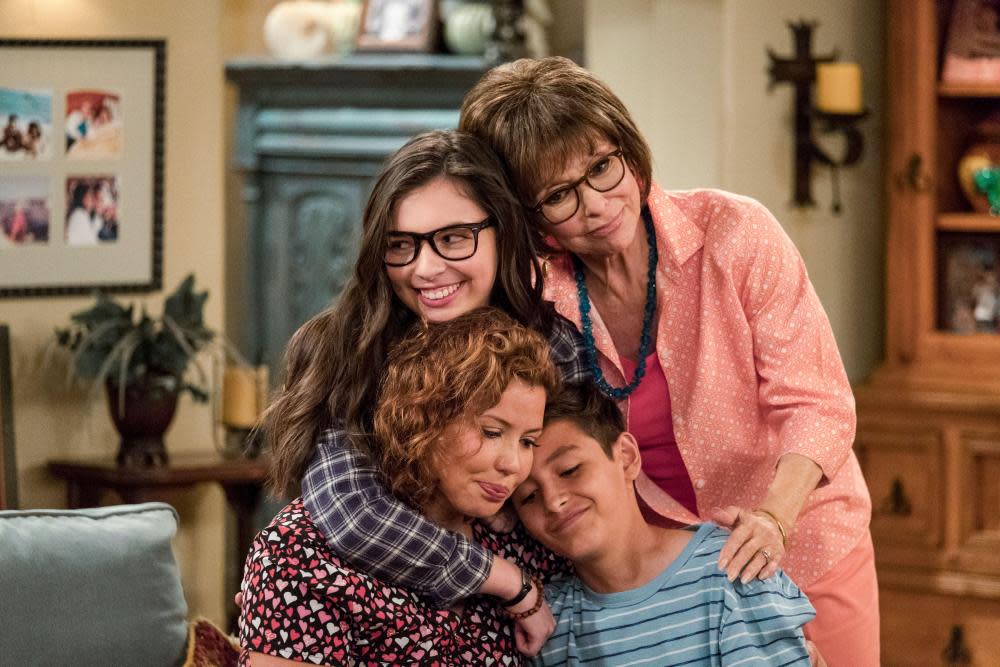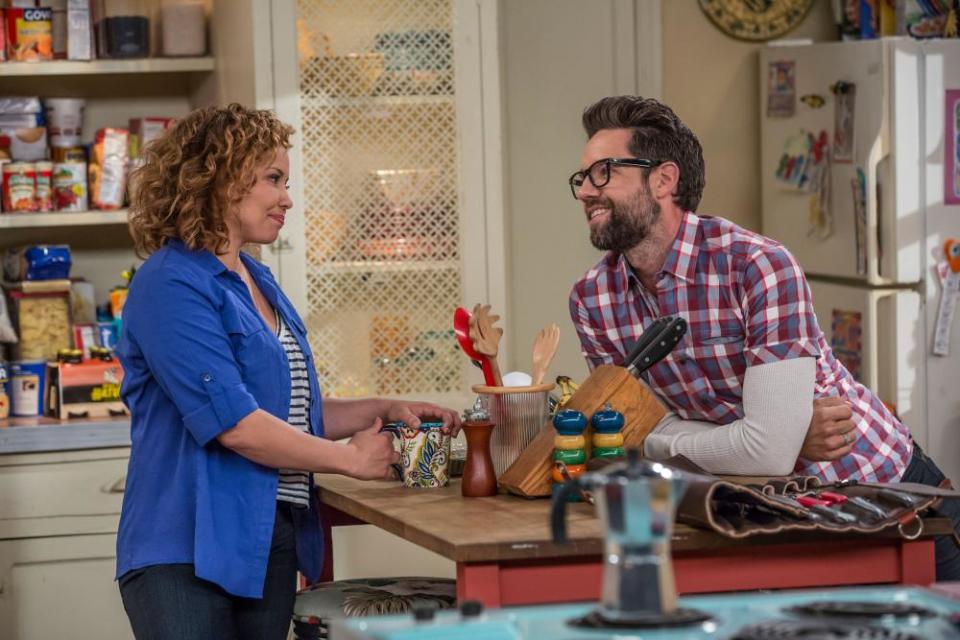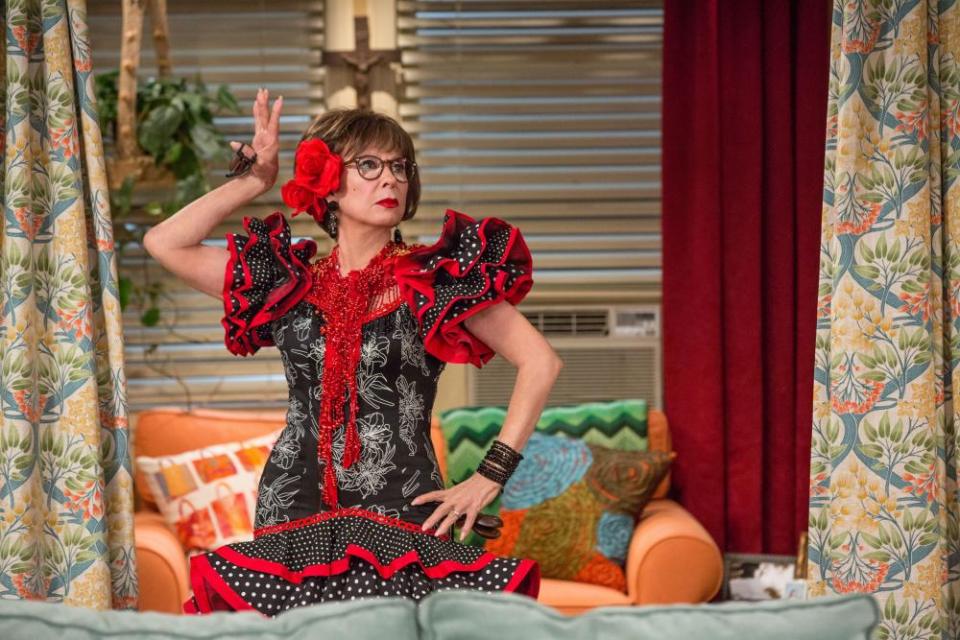One Day at a Time: Rita Moreno and Justine Machado in joyously reimagined 70s sitcom

The classic multi-camera format of traditional sitcoms – think brightly lit studio sets, audible laughter, broad comedy – has mostly fallen out of favour as the less restrictive single-camera format has taken the genre to more sophisticated heights in shows like The Office, The Good Place and Schitt’s Creek.
The first hint of canned laughter is often enough to put people off, which may be why no one I know has watched the joyous 2017 series One Day at a Time.
The focus of this multi-cam sitcom, a reimagining of the 1975 series, is Cuban-American army veteran and nurse Penelope Alvarez, who lives in a rent-controlled apartment in Los Angeles with her teenage children, Elena and Alex, and mother, Lydia. It’s a simple set-up, but its impressive pedigree and deep pathos ensure it holds its own among the best of the genre.
Related: Ladies and Gentleman, the Fabulous Stains: teenage Diane Lane and Laura Dern rock punk
One Day is developed by legendary producer Norman Lear, who produced the original and has a legacy of introducing progressive ideas and controversial topics into the homes of millions via such shows as All in the Family and The Jeffersons. He was, thankfully, wise enough in his 90s to know that an old white man isn’t the right person to write a story about a Latinx single mother, so recruited Cuban-American writer Gloria Calderón Kellett as co-showrunner, who developed the show to reflect her own experiences. A commitment to authenticity trickled down to the writing team, which in the first season was half women and half Latinx.

The strong cast is led by an irresistible performance from Justina Machado as Penelope. Machado has long been a strong supporting actor – I know her best from the stunning Six Feet Under – but her ability to balance dramatic weight and infectious effervescence suggests she should have been starring all along.
As flamboyant abuelita Lydia, living treasure Rita Moreno is likely the only EGOT (Emmy, Grammy, Oscar and Tony winner) to ever star in a sitcom. Drawing on an unparalleled career, Moreno brings poignancy, humanity and sexuality to a role that could easily devolve into caricature. Young actors Isabella Gomez and Marcel Ruiz ably round out the Alvarez family cast; Gomez in particular has a lot to contend with as her character, Elena, comes out during the course of season one and faces heartbreaking rejection from her father. Notably, all four leads are Latinx.
The writers have capitalised on the acting talent by imbuing every episode with heavy issues, from Trump and immigration to sexist micro-aggressions to post-traumatic stress. Each is handled with depth and compassion, often via multi-generational clashes in which equal space is given to all perspectives, allowing characters to grow and change in response. The result is compelling. I dare you to get through more than a few episodes without tears.

The specificity of telling authentic stories like these paradoxically makes the show strikingly relatable. It doesn’t matter that I’m not a Cuban-American teenager who came out at my quinceañera; what matters is that the story arc was written by a Latinx woman who had a similar coming-out experience, and as a result the story feels real. It doesn’t matter that I’ve never experienced the trauma of fleeing my home country as a child, as Lydia did; what matters is that Moreno left hers at age five and never saw her brother again, and this authenticity comes through in the show. The intense realness underpinning the material circumvents any cultural chasms, connecting deeply on a human level.
While One Day has rightly received praise for its Latinx and queer representation, it is as remarkable for its depiction of a formidable matriarchy. Despite their differences, all three generations of Alvarez women navigate life’s challenges with that distinctly feminine combination of strength, wisdom and empathy. The positive effect this has on young Alex is a quiet but convincing case for the power of female leadership.
Related: Chewing Gum: nosebleeds and crises of faith in Michaela Coel's hilarious coming-of-age comedy
Consistently appearing in critics’ “best of” lists and holding a near-perfect critical score on Rotten Tomatoes wasn’t enough to keep One Day afloat: Netflix cancelled the series after three seasons, citing too few viewers. A strong social media campaign saw US network Pop TV save it for a fourth season (which is unfortunately unavailable to stream in Australia at the time of writing), but Covid delays and network changes permanently killed it late last year.
The cancellation may be par for the course in an increasingly ruthless streaming landscape but it feels particularly exasperating that a universally adored show by and about women of colour was deemed disposable. Moreover, as distressing global events continue to develop around us, the wisdom and warmth of the Alvarez family is exactly what we need more of. For now, 39 glorious episodes will have to suffice.
• The first three seasons of One Day at a Time are available to stream in Australia on Netflix. For more recommendations of what to stream in Australia, click here


